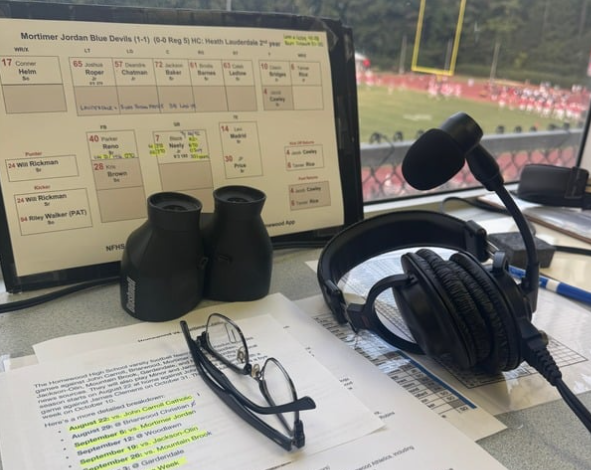A focus on mastery of material and accurate reporting of student progress are goals behind the changes to the gradebook at Homewood High School this year.
The most evident changes involve homework no longer factoring into students’ final grades and a switch from nine-weeks grading periods to semester-long grading periods.
Jana Flinkow, the assistant principal in charge of instruction and curriculum, explained the previous system wasn’t broken and in need of fixing, but that changes to the gradebook and to provide the most accurate reflection of student mastery.
“I don’t know that I would necessarily say [the changes fix a problem], as much as aligning our grading practices with the district,” Flinkow said. “The goal is to ensure that grades reflect what students actually know and can do, rather than just whether they completed homework or behaved in class.”
In the past, homework and classwork contributed to overall grades. Flinkow argues this often did not ruly show a student’s understanding of the material.
“The overall goal is that grades should reflect mastery of learning, so that the grade is truly going to show and demonstrate what a student knows and can do,” she said
Sophomore Carly Parks admits she’s not the most diligent when it comes to homework and welcomes that particular change.
“As someone with ADHD, it is really good for me,” she said. “I am a good test taker, but I’m so bad at doing my homework. It just makes it stressful for me.”
However, for teachers like honors geometry instructor Katelyn Kistemaker, there was an initial concern about whether this would deter some students from completing homework.
“I was concerned that it would hurt students more than it would help,” Kistemaker said, remembering the first time she heard about the homework policy change.
She pointed out that, while some students may excel on tests without doing homework, many others rely on homework to support their understanding and boost their grades when needed.
Homework not factoring into final grades is not the only change this year. The new full-semester grading schedule is designed to give students more time to prove their understanding of class material.
In years past, a student’s progress nine weeks into the school year would ultimately factor into their final semester grade. The thought behind the semester-long grading period is that if a student shows they’ve improved on a concept and now know it much later in the semester, their previous, lack of understanding shouldn’t factor against them.
“It’s going to allow you more opportunities to master skills and concepts,” Kistemaker said. “It’s supposed to allow you more time to understand a skill or concept so that you have more time to master it.”



























